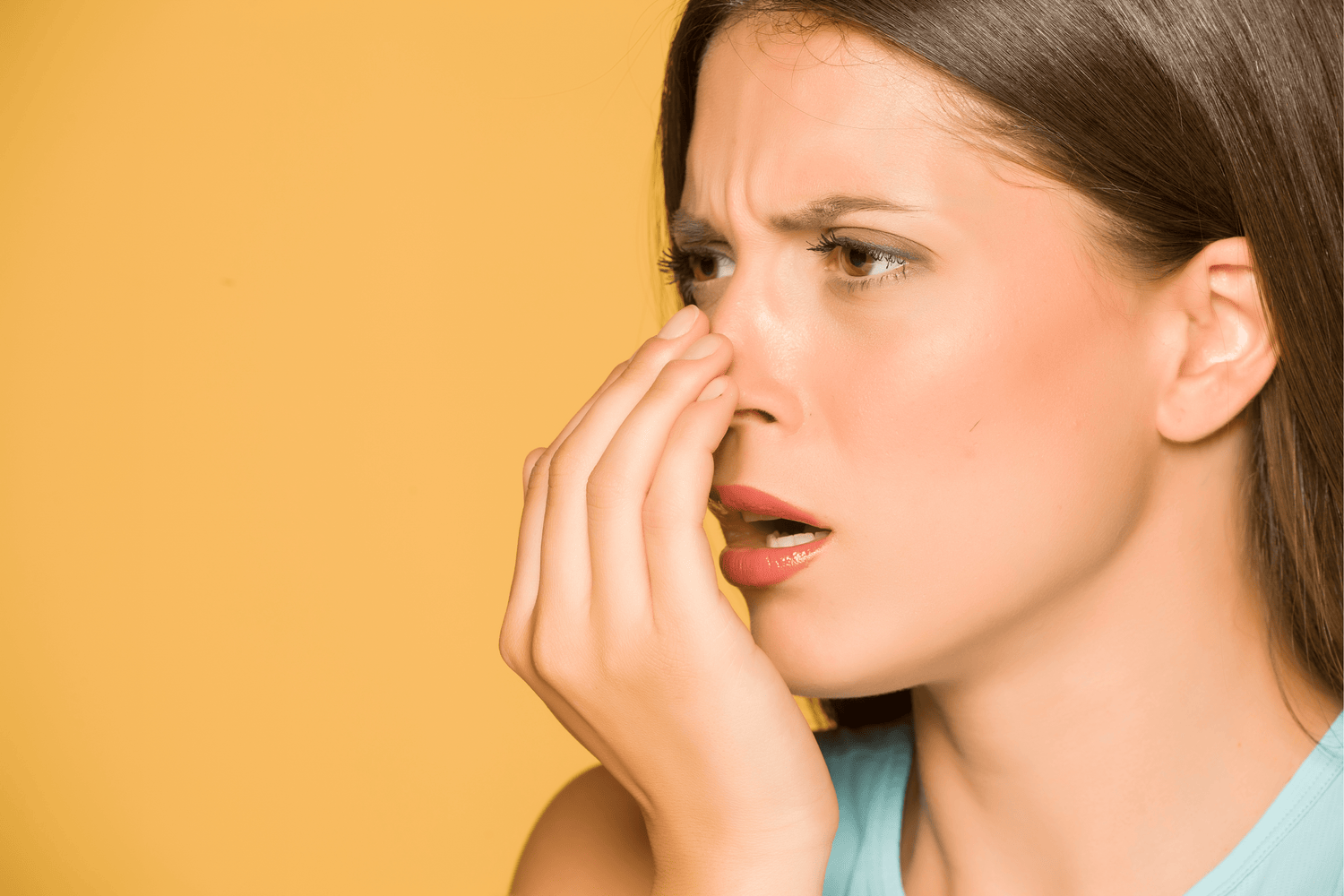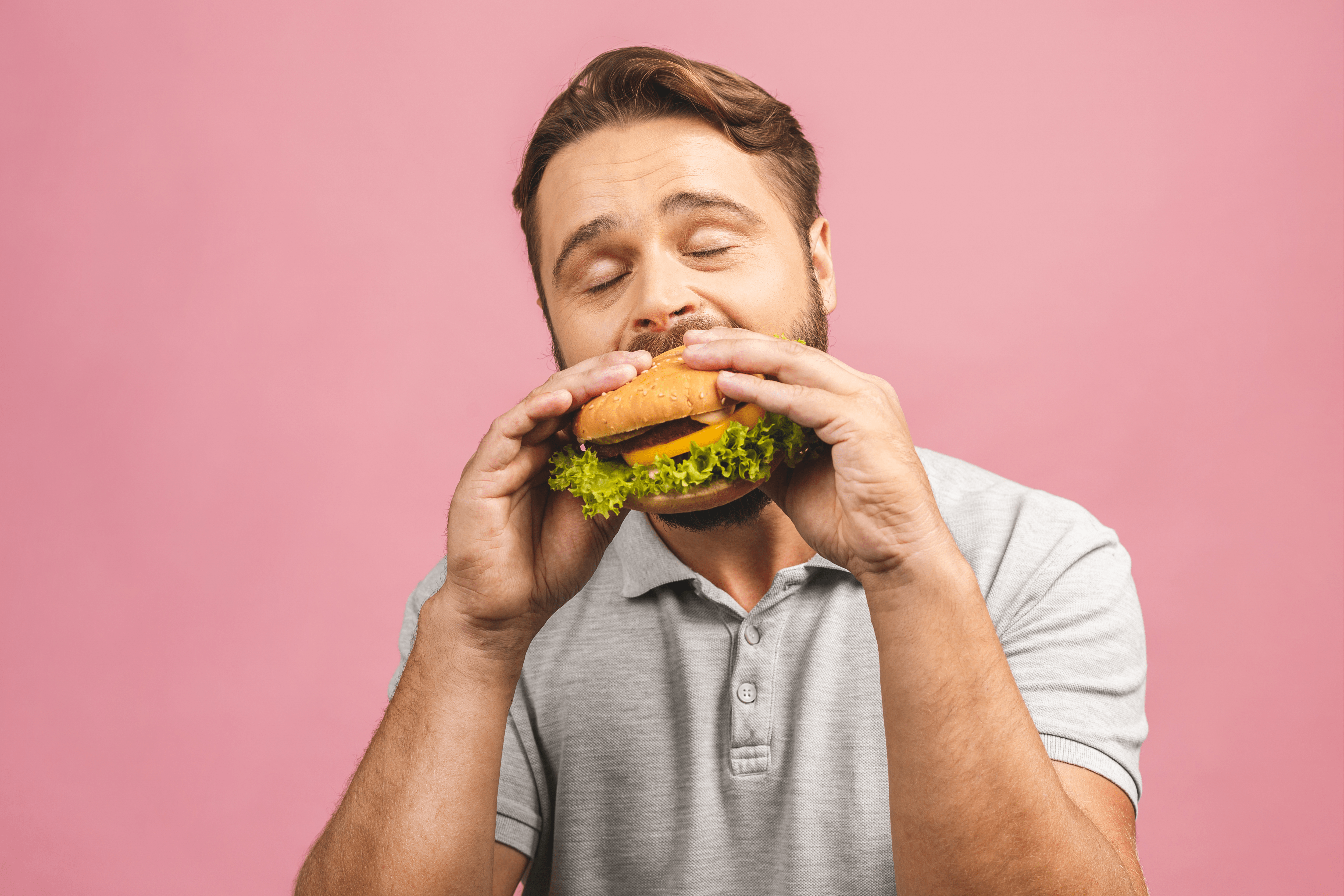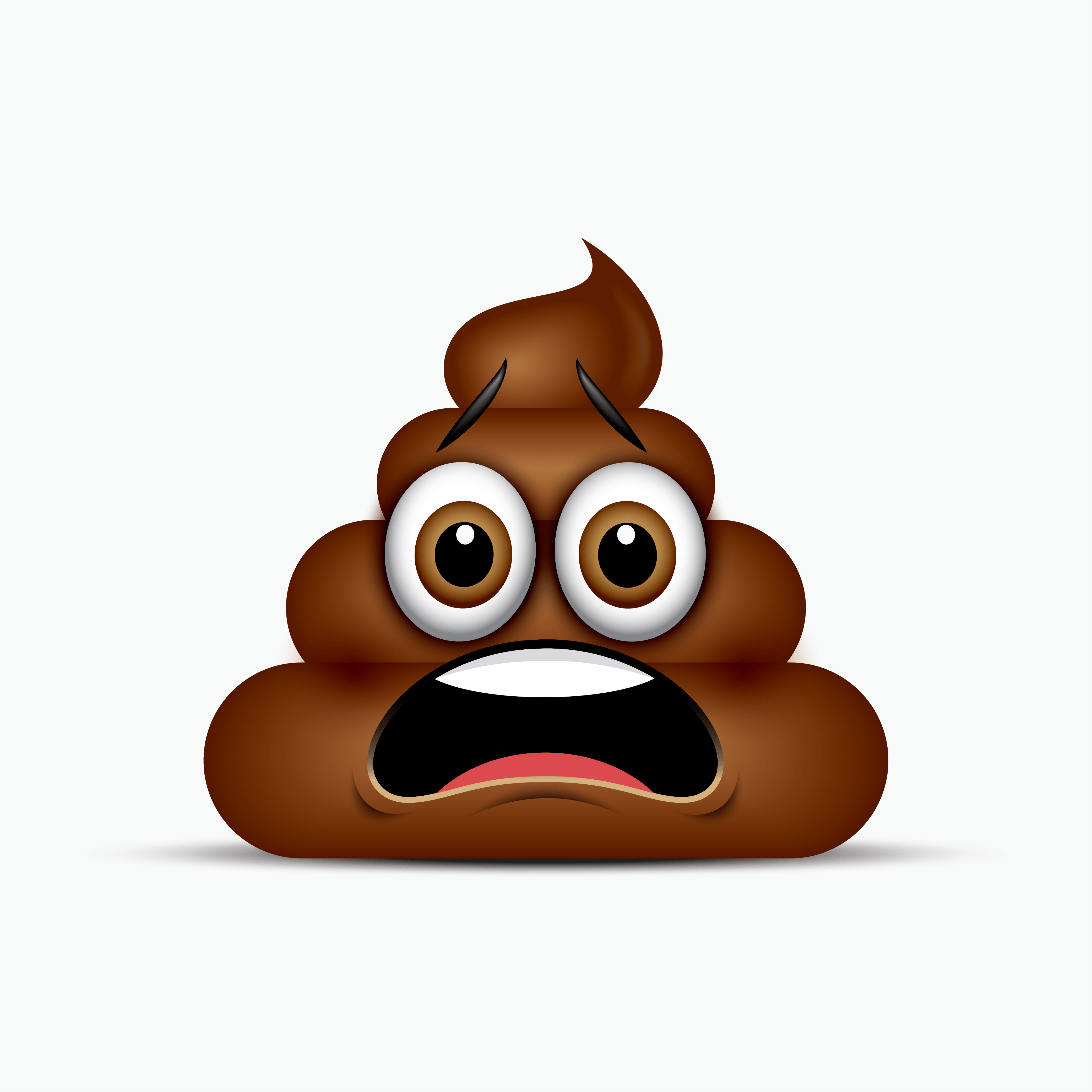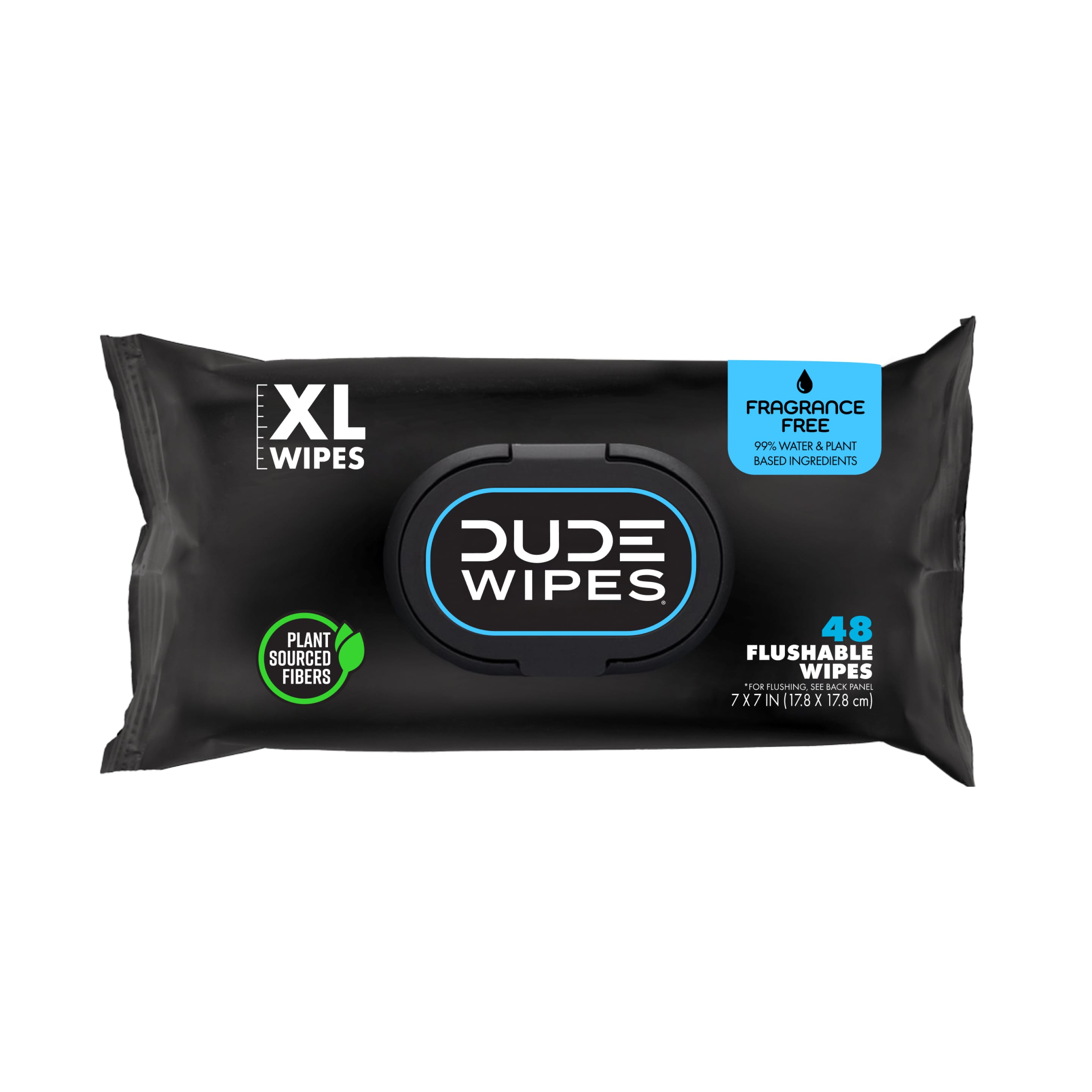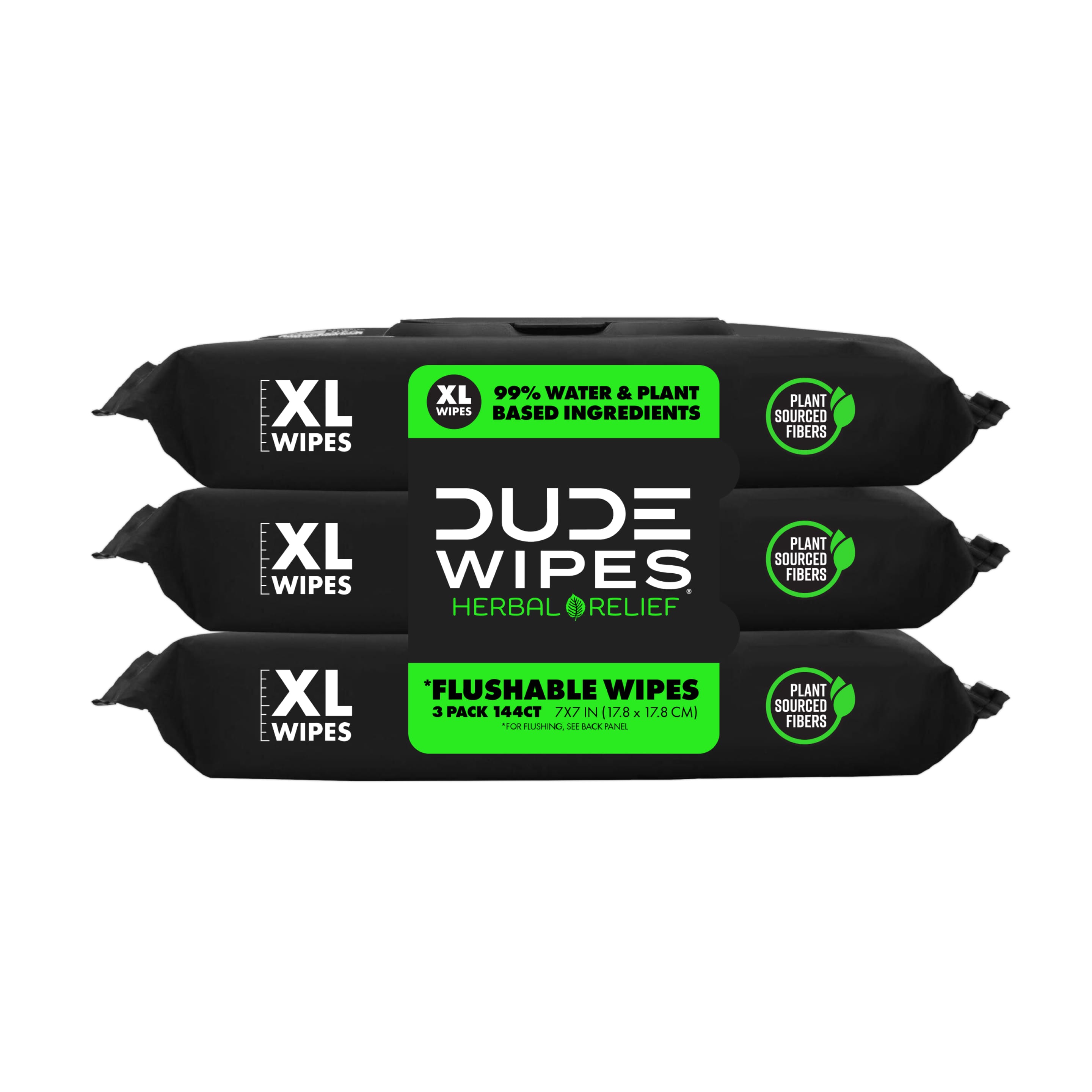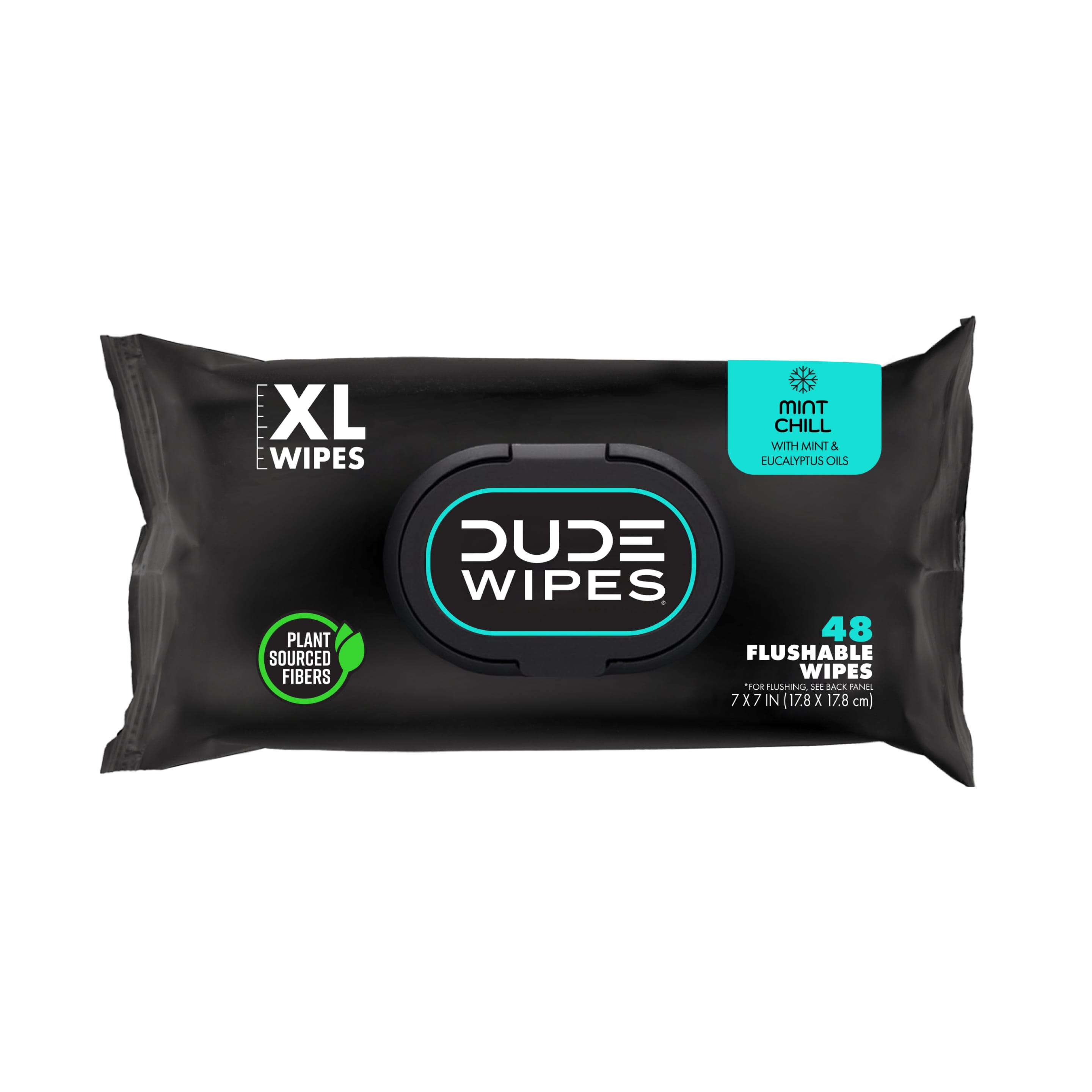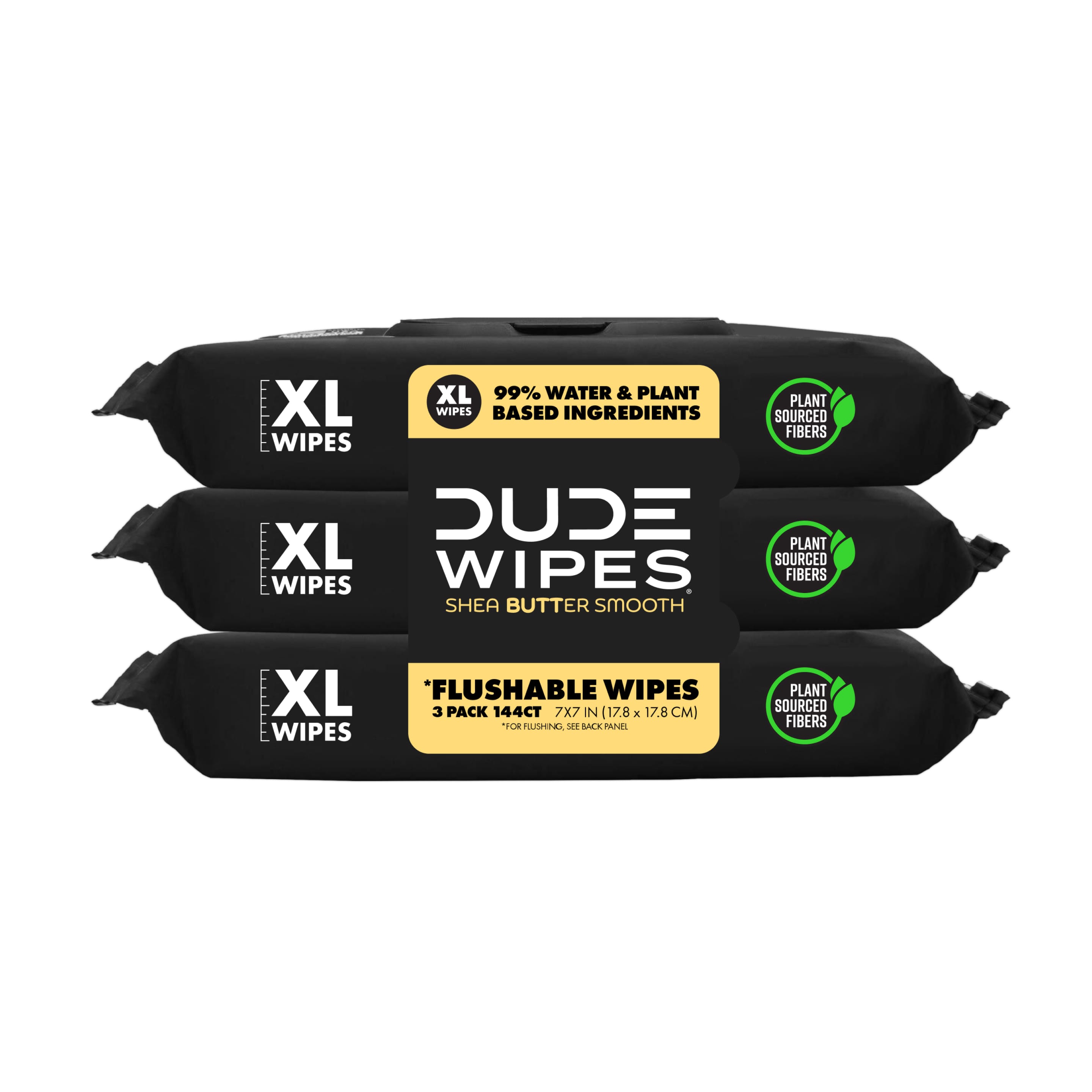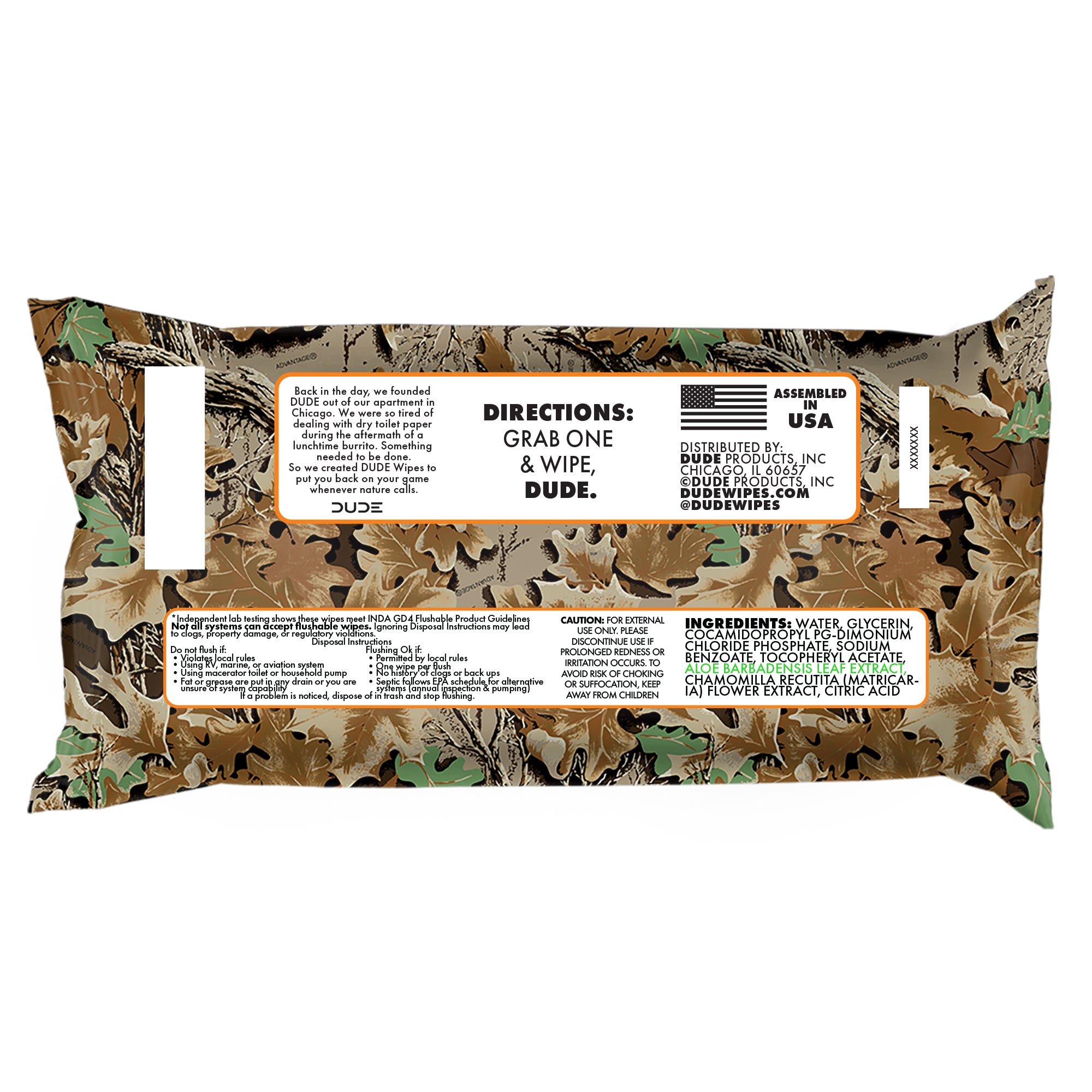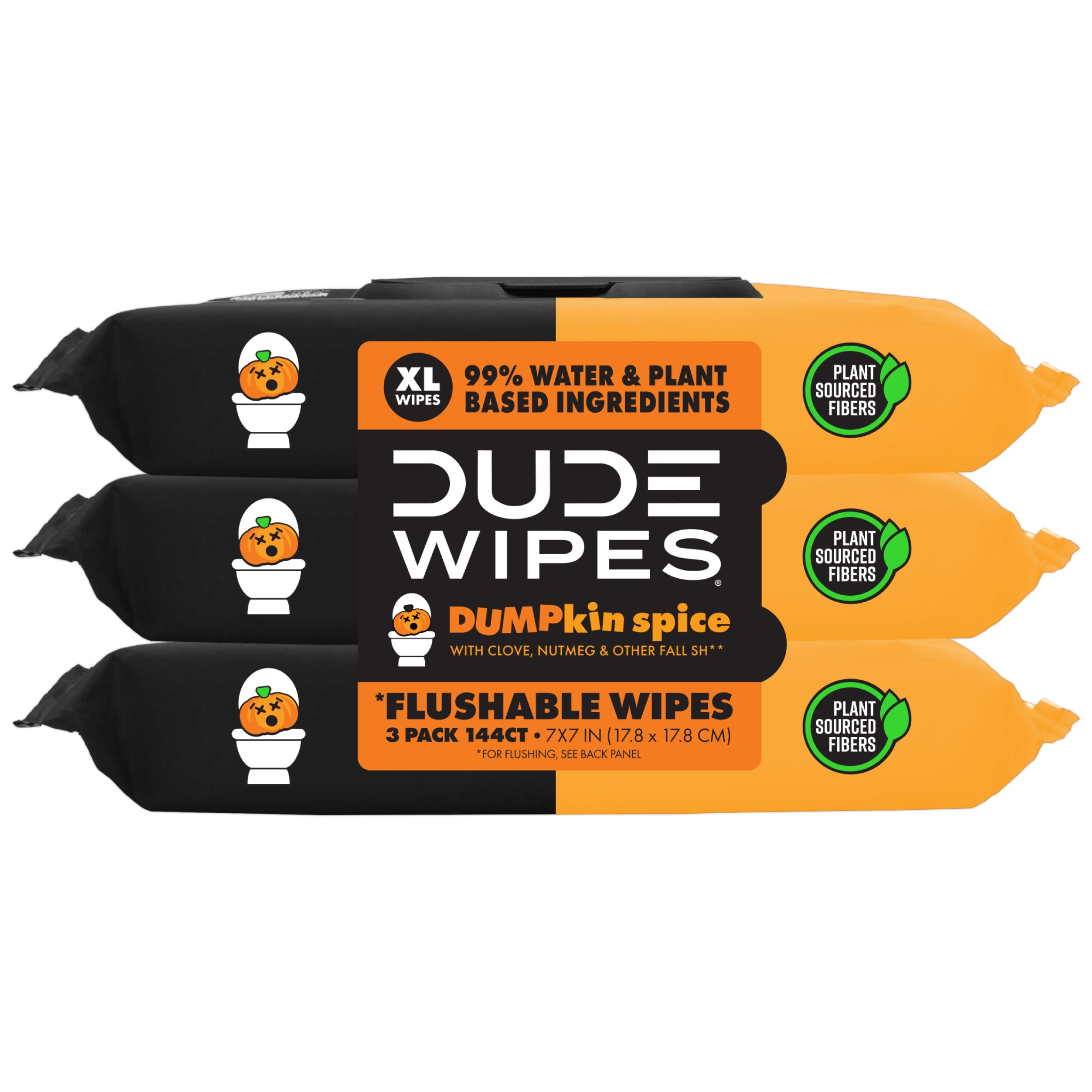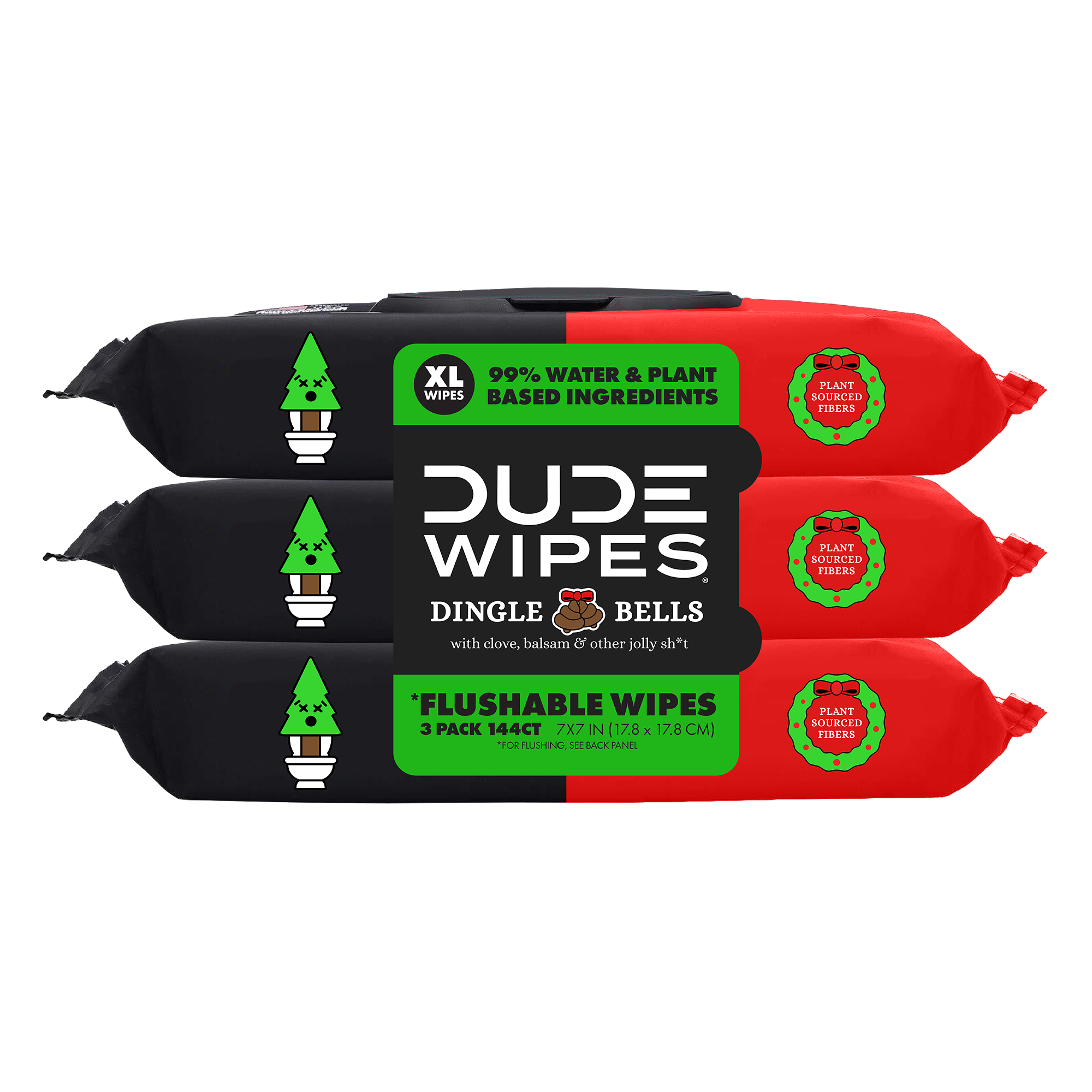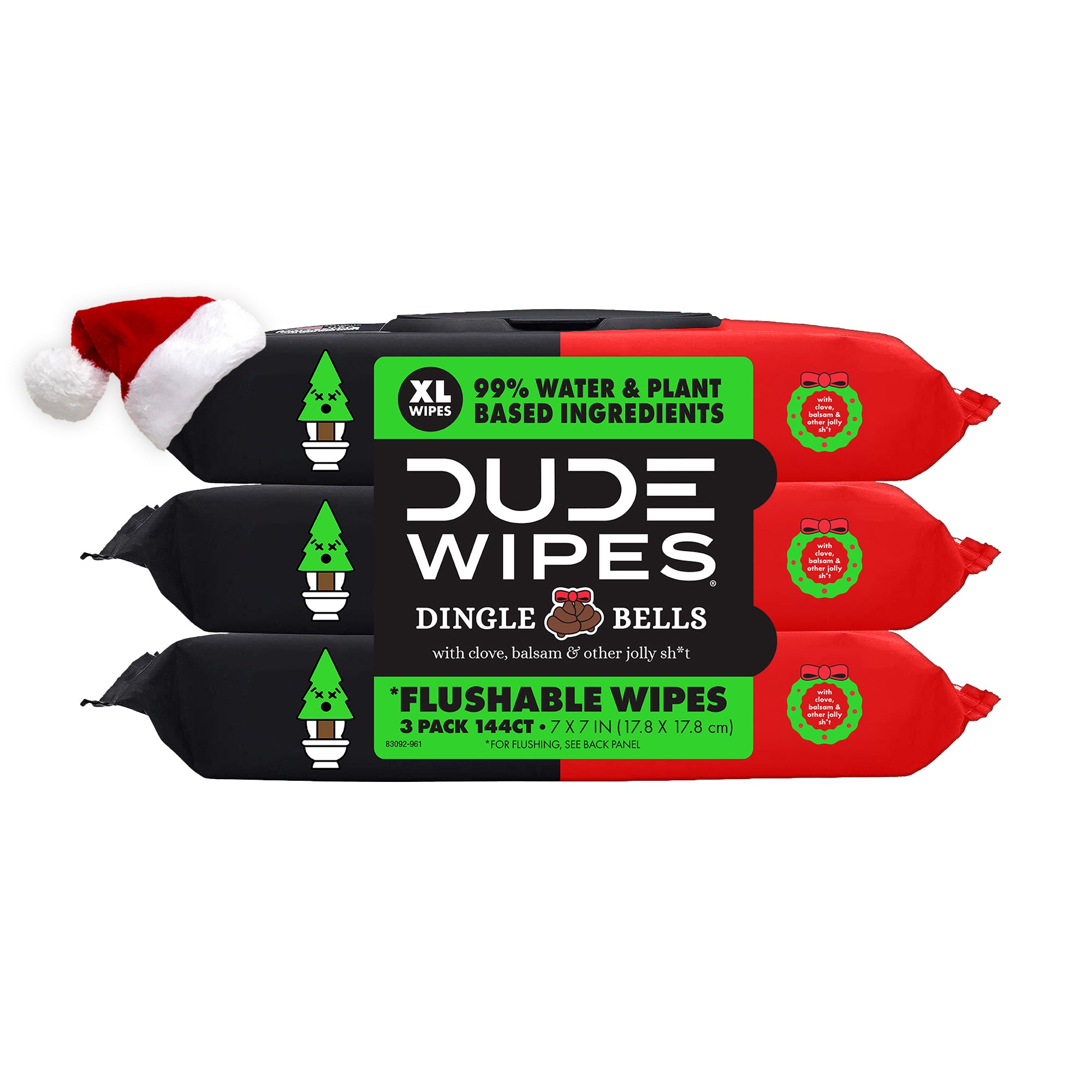You might think your breath smells minty fresh, or at least tolerable. But if you ask a random person to take a whiff, they’re likely to disagree.
In 2016, a group of researchers asked nearly 400 people about their perceptions of halitosis (the medical term for bad breath). Only 21.4% of those people believed their breath smelled bad. However, 78% said they noticed other people with bad breath.
If you’re reading this, you may be tempted to smell your breath to see if it stinks. The bad news is humans are really bad at detecting their own breath odors. The good news is we have tips to assess how your breath smells and what to do if it reeks.
It’s Hard to Smell Your Own Breath—Here’s Why
Your breath comes out right under your nose, so you’d think it would be easy to smell. However, your brain acclimates to sensations, sounds, and smells when you’re exposed to them for long periods of time.
That’s why you become “nose blind” to the smell of your bathroom or your body odor but can easily detect a fart or the scent of food wafting from a restaurant.
As far as breath tests go, most people go for the classic: cup your hands, huff out, and take a whiff. This is far from reliable though. Your mouth and nose are connected, which means your brain likely won’t detect bad breath in your hands if it’s already desensitized to the breath in your mouth.
If you do smell something after the huff test, chances are you’re not smelling your breath—you’re smelling your palm which can have all kinds of odors on it depending on what you touch, the kind of soap you use, etc.
Bottom line: trying to smell your own breath is an exercise in futility.
How to Tell If You Have Bad Breath
Since you can’t trust the huff test to evaluate the smell of your breath, here are a few alternatives.
1. Get a Breath-Check Buddy
Exposing your potentially rotten breath to another person puts you in a vulnerable position, but it’s the most reliable way to know the truth. That’s why we recommend asking someone you trust, like a significant other or a close friend. You need someone who’s honest, but also won’t cast judgement if your breath reeks after devouring a plate of curry chicken.
It’s all about accountability. Plus, sniffing each other’s mouth fumes might even strengthen your bond.
2. Use a Halimeter
If you’d rather not breathe into someone’s face, a halimeter lets you test your breath by yourself—and it’s based on data, not opinions.
A halimeter is a small, box-shaped instrument with a sensor that measures the volume of “volatile sulfur compounds” (VSCs) in your breath—the stuff that makes it stink. If your VSC is higher than 100 parts per billion, that indicates bad breath.
Your dentist has this tool, but you can also buy one for home use.
3. Smell Your Face Mask
If you wear a face mask for an extended period of time, it can make you more aware of how your breath smells.
“When the nose and mouth are trapped in the same small recycled airspace, it is much easier to smell and sense your own bad breath,” says Dr. Matthew J. Messina assistant professor at the Ohio State University College of Dentistry. “This creates a unique opportunity for each individual to experience their breath from a third-person perspective.”
Speaking of masks, is inhaling the breath you just exhaled responsible for the phenomenon of “mask breath?”
Do Face Masks Cause Bad Breath?
One of the unintended consequences of wearing face masks is that it made people hyper aware of their dental hygiene habits (or lack thereof). There’s a common assumption that wearing masks causes bad breath. However, as Messina explains, that’s not how it works.
“Mask-wearing is just making many become aware of [bad breath],” she says. “The bad breath has always been there.”
For example, you might not typically notice your nasty morning breath, but if you mask up first thing in the morning without brushing your teeth, you’ll smell what everyone else has been smelling.
Common Causes of Bad Breath
Bad smelling breath is usually the result of sub-par hygiene habits, but there are other factors at play too.
- Pungent foods and drinks: garlic, onions, fish, spicy foods, and coffee top the list when it comes to the worst foods for your breath.
- Bad oral hygiene: when you don’t brush your teeth and floss regularly, bacteria builds up on your teeth, tongue, and gums. The longer this stuff festers, the stinkier your breath gets.
- Medical conditions: although this is less common, sinus infections, tonsillitis, bronchitis, acid reflux, and other gastrointestinal issues may be responsible for unpleasant breath.
How to Get Rid of Bad Breath
Try these six tips to maintain fresh breath all day.
1. Brush Twice a Day
For maximum freshness you should brush after every meal, but once in the morning and once at night will suffice. Use an electric toothbrush for a deeper clean and make sure your toothpaste is fluoride-based. Scrub your top teeth for one minute, then your bottom teeth for a minute.
2. Floss Every Day
You might roll your eyes when your dentist tells you to floss, but it makes a difference. Let’s say you’re chowing down on a slab of ribs and a piece gets lodged between two teeth way in the back. Unless you floss, you’ll have decomposing pork in your mouth until it works its way out. That’s not exactly the most pleasant aroma.
3. Use a Tongue Scraper
A tongue scraper removes the buildup of odor-causing gunk, which often sits at the back of your mouth. You can grab one of these little tools for just a few bucks on Amazon and add it to your daily dental hygiene habit.
4. Visit the Dentist Twice a Year
Routine trips to the dentist are great for keeping your mouth clean, but dentists can also identify the underlying cause of chronic bad breath, whether it’s tonsil stones, gum disease, tooth decay, or another oral health issue.
5. Freshen Up After Meals
For a quick fix, pack breath mints, gum, or a travel-sized bottle of mouthwash to use after you eat.
6. Drink More Water
Water flushes away odor-causing bacteria, but a dry mouth can contribute to bad breath. The solution is—you guessed it—drinking more water (ideally 15 cups per day for men).
Stay Fresh to Stay Confident
We all know the mental anguish of going into a job interview or a first date knowing damn well your breath smells like a garbage disposal. It’s even more stressful when you don’t know whether you’re exhaling toxic fumes into someone’s face. That’s why it’s essential to stay ahead of the problem: brush, floss, scrub, and rinse before every important interaction. It’s like an insurance policy against bad breath.
And don’t forget your mouth isn’t the only stinky hole you need to keep fresh: grab a pack of DUDE Wipes next time you’re in the self care section of the store.

